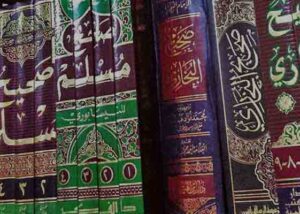Is learning a little knowledge better than one hundred Rakahs from a Hadith saying?
Quran
Hadith
Islamic Text
بِسْمِ اللَّهِ الرَّحْمَنِ الرَّحِيمِ
In the Name of Allah Most Merciful Most Kind
Short Answer
Yes, there is a Hadith saying that learning a little knowledge is better than one hundred Rakahs. Many scholars have considered this Hadith to be Hasan (strong). However, some said it is weak. It may be fair to say it is Hasan Lighayrihi.
Hadith
حَدَّثَنَا الْعَبَّاسُ بْنُ عَبْدِ اللَّهِ الْوَاسِطِيُّ قَالَ: حَدَّثَنَا عَبْدُ اللَّهِ بْنُ غَالِبٍ الْعَبَّادَانِيُّ، عَنْ عَبْدِ اللَّهِ بْنِ زِيَادٍ الْبَحْرَانِيِّ، عَنْ عَلِيِّ بْنِ زَيْدٍ، عَنْ سَعِيدِ بْنِ الْمُسَيِّبِ، عَنْ أَبِي ذَرٍّ، قَالَ: قَالَ لِي رَسُولُ اللَّهِ صَلَّى اللهُ عَلَيْهِ وَسَلَّمَ: يَا أَبَا ذَرٍّ، لَأَنْ تَغْدُوَ فَتَعَلَّمَ آيَةً مِنْ كِتَابِ اللَّهِ، خَيْرٌ لَكَ مِنْ أَنْ تُصَلِّيَ مِائَةَ رَكْعَةٍ، وَلَأَنْ تَغْدُوَ فَتَعَلَّمَ بَابًا مِنَ الْعِلْمِ، عُمِلَ بِهِ أَوْ لَمْ يُعْمَلْ، خَيْرٌ مِنْ أَنْ تُصَلِّيَ أَلْفَ رَكْعَةٍ
We were informed by al-Abbas bin Abdillah al-Wasiti. He said, we were informed by Abdullah bin Ghalib al-Abaadaani, from Abdullah bin Ziyaad al-Bahraani, from Ali bin Zayd, from Saeed bin al-Musayib, from Abu Dharr (May Allah Most High be pleased with him), who said:
The Messenger of Allah ﷺ said to me: ‘O Abu Dharr! For you to learn one Verse from the Book of Allah in the morning is better for you than praying one hundred Rak’ah (cycles of prayer). And for you to learn a portion of knowledge in the morning, whether it is acted upon or not, is better for you than praying one thousand Rak’ah.’ (Sunan Ibn Maja, 219).
The Hadith above speaks about great reward being attained by seeking knowledge. Just a little knowledge is superior to praying one hundred Rakah of Nafl. Additionally, such knowledge should be written down. It is due to narrations like this that many scholars have asserted that knowledge is the best of all Nafl (supererogatory) actions. However, there is some difference of opinion regarding the authenticity of the Hadith.
Classical Scholars
رَوَاهُ ابْن مَاجَه بِإِسْنَاد حسن. (الترغيب والترهيب)
Ibn Majah narrated it with a Hasan (strong) chain. (Imam al-Mundhiri, al-Targhib wa al-Tarhib).
As seen in the Nass (text) above, Imam al-Mundhiri considered the Hadith to be authentic (Hasan). Further, many latter scholars concurred with his opinion and narrated it. Although some other scholars did not refer to Imam al-Mundhiri, they still considered the Hadith to be Hasan (strong).
ولابن ماجة بإسناد – قال المنذري: حسن – عن أبي ذر رضي الله. (مَصَاعِدُ النَّظَرِ للإشْرَافِ عَلَى مَقَاصِدِ السِّوَرِ)
Ibn Majah has it (the Hadith) with a chain that is sound according to Imam al-Mundhiri, from Abu Dharr (May Allah Most High be pleased with him). (Masaaid al-Nadhr, Imam Abu Bakr al-Buqai).
قال المنذري: رواه ابن ماجة بإسناد حسن. (عجَالة الإملاءِ)
(Imam) al-Mundhiri said, Ibn Majah narrated it (the Hadith) with a sound chain. (Imam Abu Ishaq al-Naaji, Ajaalatu al-Imlaa).
رواه ابن ماجه بإسناد حسن. (المتجر الرابح)
(Imam) Ibn Majah narrated it with a sound (Hasan) chain. (Imam Sharaf al-Deen al-Dimyati, al-Matjar al-Rabih).
وروى ابن ماجه بإسناد حسن، عن أبي ذر رضي الله عنه. (الكنز الأكبر من الأمر بالمعروف والنهي عن المنكر)
(Imam) Ibn Majah narrated it with a sound (Hasan) chain from Abu Dharr (May Allah Most High be pleased with him). (Imam Abd al-Rahman bin Abi Bakr al-Hanbali, al-Kanz al-Akbar).
Explanation
As we see in the texts above, many scholars have considered the Hadith to be Hasan. However, Imam Shihab al-Deen al-Busayri did say it is weak. Yet, he also seemed to raise the possibility of Hasan Lighayrihi since he mentioned supporting narrations:
هَذَا إِسْنَاد ضَعِيف لضعف عَليّ بن زيد وَعبد الله بن زِيَاد. وَله شَاهد فِي جَامع التِّرْمِذِيّ من حَدِيث ابْن عَبَّاس وَقَالَ غَرِيب وَآخر عِنْده من حَدِيث أبي أُمَامَة وَقَالَ حسن غَرِيب. (مصباح الزجاجة في زوائد ابن ماجه)
This chain is weak due to the weakness of Ali bin Zayd and Abdullah bin Ziyaad. However, it has a supporting narration (Shahid) in the Jami of (Imam) al-Tirmidhi, from the Hadith of (Sayidina) Ibn Abbas. He (Imam al-Tirmidhi) said it was singular (Ghareeb). Another narration he has from the Hadith of Abi Umamah, where he said it is Hasan Ghareeb. (Imam Shihab al-Deen al-Busayri, Misbaah al-Zujajah).
And Allah Most High Knows Best.
–Answered by Shaykh Noorud-deen Rashid (20.04.23)






